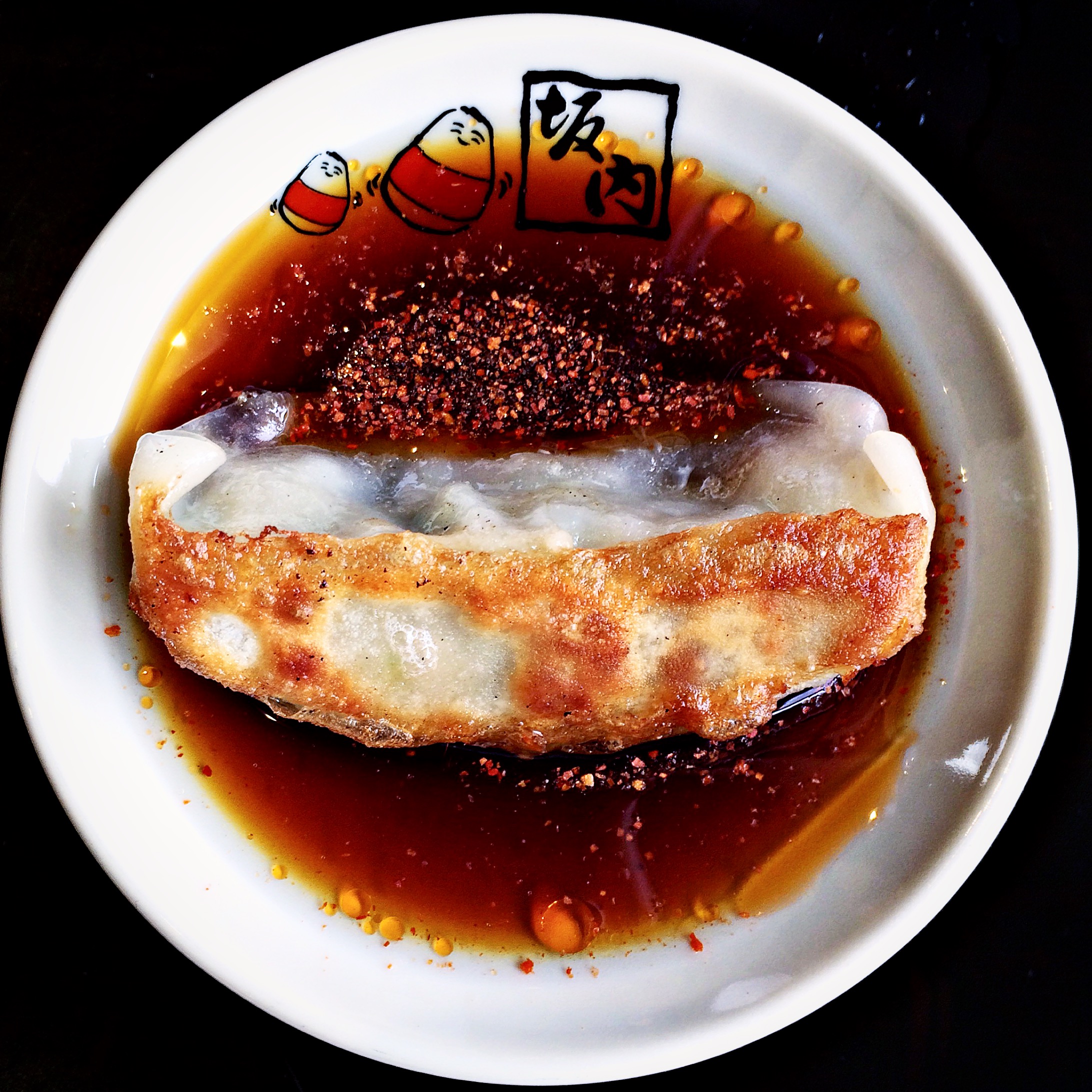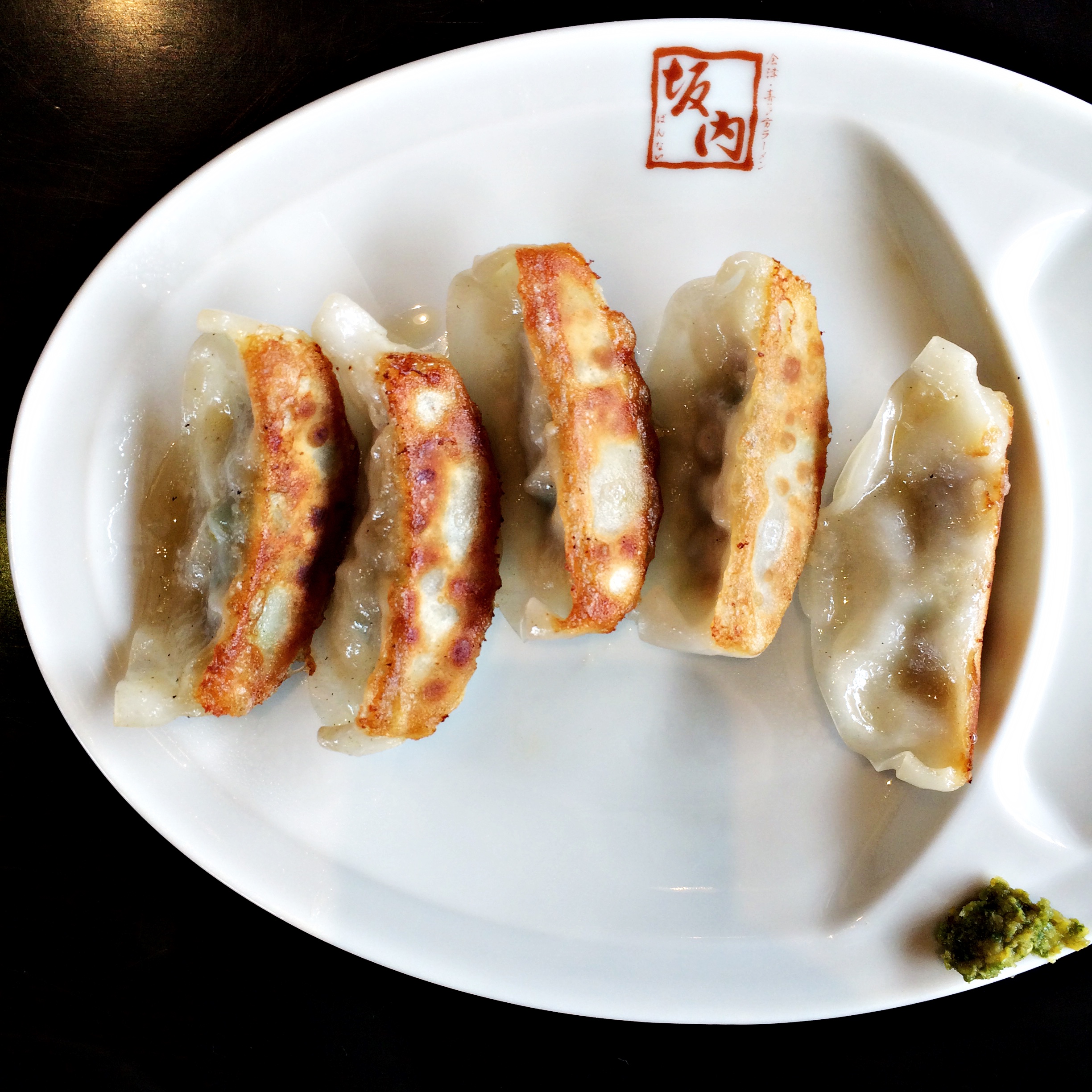It was a beautiful gloomy Saturday when we went to an Audiophile event in Newport/Costa Mesa. We checked out a few headphones and earphones. But honestly, I was spending most of my time finding a place to eat for lunch. It's pretty much because I was really hungry. All I'm waiting for are the words "ready for lunch?" (who is with me on that?).
My go to place in Costa Mesa is normally Santouka (check it out NOW) and that will always be one of my favorites until I can find another ramen shop that brings me back to a drunken night I had in Japan.. But today, today was a different day. I wanted Tsukemen.
Hot Tsukemen
We decided to try Kitakata Ramen in Costa Mesa. In no time, we were seated. I immediately ordered my Tsukemen with some appetizers to accompany our meal. My Tsukemen came out pretty quickly. You eat Tsukemen by dipping the noodles in the broth you see in the corner. I like to mix mine with the grated radish and ginger. I'll dip the pork in when I am ready to take a big slurp. I also like to squeeze some lime into my dipping sauce which is also provided with this meal. I like that the noodles were kept in a warm bath to keep it consistent with my hot option. I highly recommend this if you've never had Tsukemen. It is NOT comparable to a tonkotsu/shoyu/miso Ramen, so please enjoy this as a different category.
Chashu Tonkotsu Ramen
First and foremost it's Tonkotsu, not Tonkatsu. If you ever want to become a ramen connoisseur, you must get this right. It Pains me, to hear people say they love tonkatsu broth for their ramen. Please Google the difference now, and look that much more amaze-balls in front of your friends next time when you are eating ramen. Trust me, it drives me NUTS. The chashu was very tender and flavorful. Their tonkotsu was very light for this style. Tonkotsu normally has a beautiful meaty, hearty and fatty flavor due to the many hours breaking down the collagen in pork bones. This on the other hand, was good, but not what I would expect for a Tonkotsu ramen. If I have Tonkotsu, I want to feel that fat in my neck and put me to sleep. The flavors, still, was well balanced.
Chicken Karaage
Their chicken Karaage was pretty good as well. What makes good Karaage is the quality of the chicken, light seasoning and batter to enhance the flavor of the chicken. It's very different from your american fried chicken. It has ginger, mirin, and many other asian flavors. This is always one of my favorite Izakaya items to order when I'm drinking or just to enjoy with a big hunk of rice. When I was in Japan, the chicken Karaage was prepared from one whole chicken. We actually received a whole chicken (cut up of course), and that was definitely the BEST Karaage I've had because the chicken they used was really fresh.
Pork Gyoza with Yuzu Kosho. My favorite was the Yuzu Kosho! It was not overly salty like the other ones I've tried and it also had a strong spicy punch that is lacking with the ones I've had before. I actually mixed a little of the Yuzu with my Tsukemen as well. I like to eat my Gyoza with a lot of vinegar, splash of soy, splash of chili oil, and a whole lot of shichimi chili.
Chashu rice bowl
Because you can never have enough good pork. I eat this with a lot of shichimi togarashi too.
If you are ever in the area, do give this place a try. There's so much more than just Ramen. If you like a certain cuisine, don't be intimidated to try more dishes further. Most of the time, what you like is the only scratch on the surface.
Happy Eating!

